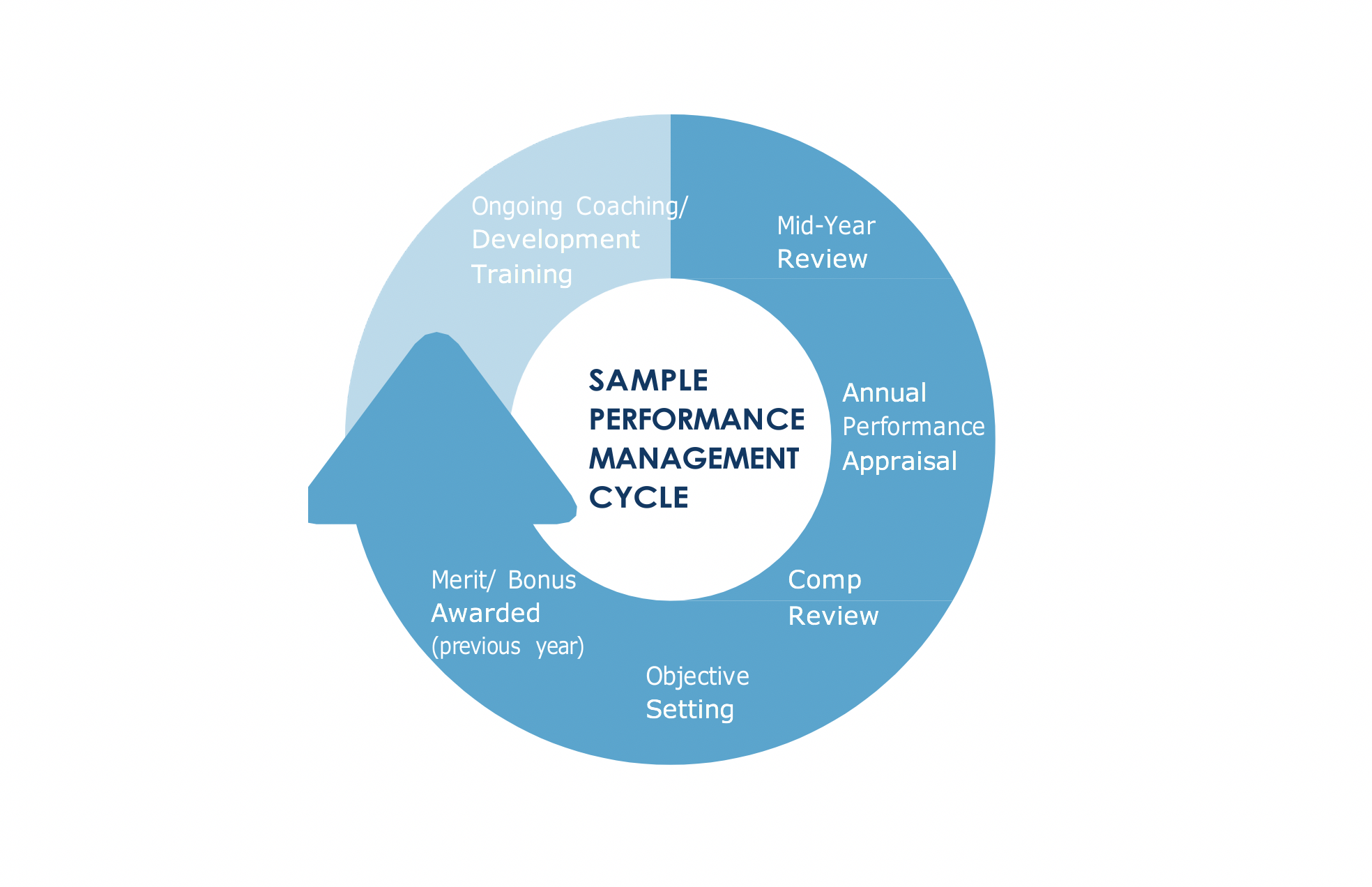The Most Effective Employee Performance Management Cycle Recommended by Expert HR Advisors
Effectively managing an employee’s performance may be the most complicated, yet most important, responsibility of being a manager. If you are too rigid, you might drive people away. If you are too laid back, your employees will think you don’t see their contributions or care about their progress. The key is to strike the perfect balance by consistently managing performance through a well-planned out process. The performance management process should include making sure employees know what is expected of them (i.e. setting objectives), meeting with them regularly to provide feedback and coaching, and providing a more formal outlet for assessing progress towards goals and objectives on a periodic basis (i. e. Mid-Year Reviews and Annual Performance Appraisals). Sprinkle in some Development Planning for good measure and your employees will feel confident in what it will take to be successful and how they fit into the organization.

The Performance Management Cycle
In a nutshell, the Performance Management Cycle is a process through which managers and team members work together to plan, monitor, and review a team member’s work objectives and overall contributions to your organization.
Design a Performance Management Cycle that works for your company. Your Performance Management Cycle should include key components such as:
- Performance Objectives – Ensure your employees’ objectives tie to business objectives, so employees are working towards shared goals that align with the goals of the organization. See our blog post on Annual Performance Objectives for more insights.
- Effective Coaching – It is common knowledge that frequent communication between employees and managers has a strong correlation to employee satisfaction and tenure. Take communication with your employees a step further by providing consistent, pinpointed feedback. As a result, you will be a more effective coach, which will lead to more productive employees and, consequently, a better business model. See our blog post The 9 Best Practices for Effective Employee Coaching for more tips.
- Mid-Year Reviews – A Mid-Year Review may not be necessary for every business, but there are clear advantages to providing a more formal outlet for feedback halfway through the year. Read our blog post on When to Leverage the Mid-Year Review Process to determine if this step in the Performance Management cycle makes sense for your business.
- Performance Appraisals – This may be the most common step in the Performance Management cycle, but it has to be done properly to be effective. Create an appraisal process that accurately assesses your employees’ performance using the right metrics, tied to objectives. Weave in components from the job description. Make sure the appraisal discussion is not going to be the first time your employee hears bad news –if you have consistently provided effective coaching throughout the year, there should be no surprises as you provide constructive feedback.
- Other Tools to Consider – Incorporate Development Planning tools, learn when to use Performance Improvement Plans and Corrective Action to effect results, determine how and when to utilize Talent Management and Succession Planning Strategies, ensure alignment with your Compensation Philosophy. All of these components of Performance Management, when leveraged correctly, can make a positive impact on your organization.
Join Our Performance Management Training Series
Berger HR Solutions offers Management Training courses as well as individual coaching on crucial topics to help you and your managers manage performance more effectively. And for the first time, Berger HR Solutions is excited to launch our new virtual Performance Management Training Series: Driving Performance Management at the Business Leader Level. If you are interested in learning more about this opportunity to drive your team’s performance to take your business to the next level, please click HERE or reach out to Berger HR Solutions at info@bergerhrsolutions.com or (410) 695-9888 for more information.







Connect with us